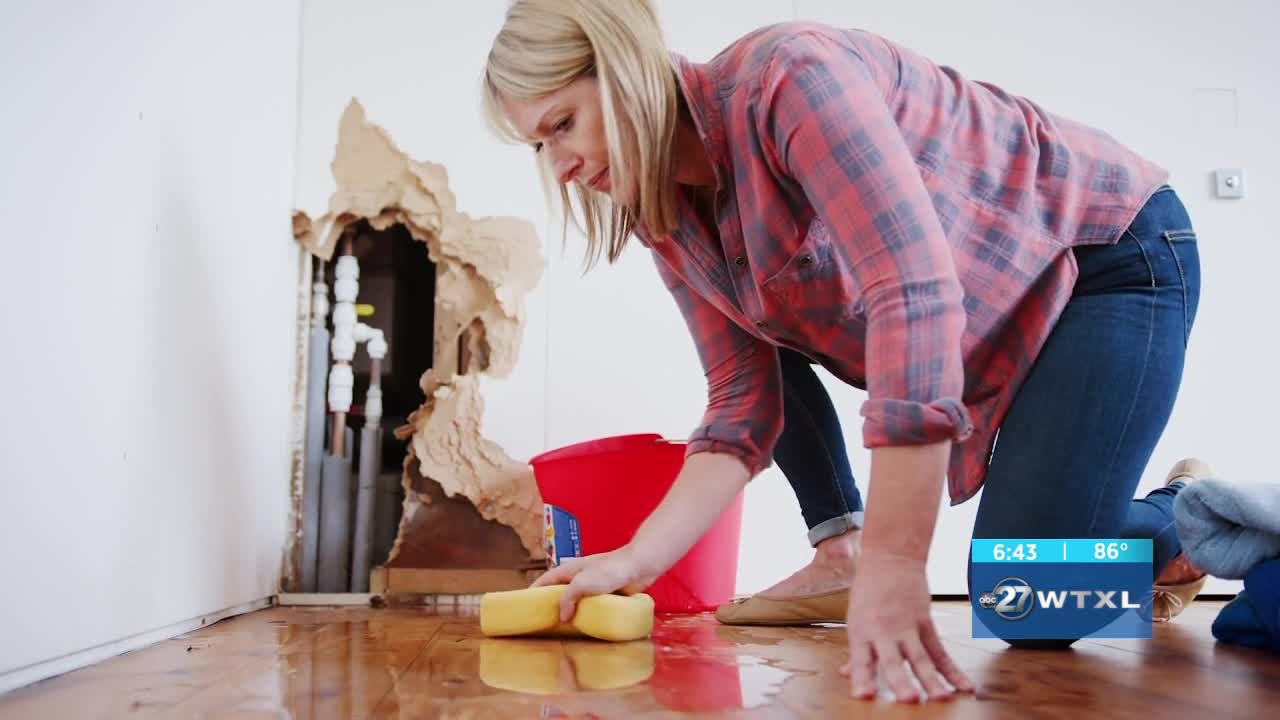Any homeowner knows the feeling the unexpected surprise of a crisis in your house. From a burst pipe to storm damage, this week’s Angie’s List report gives helpful tips on when to handle it yourself, and when to bring in the pros.
A home emergency can happen to any of us. Whether it’s due to external causes such as storms or extreme weather, or internal causes like a burst pipe, a quick reaction is crucial when responding to emergency situations like these, especially when loved ones are involved.
"When a crisis strikes, the first thing you want to do is make sure you and your family are safe. If help is necessary, call 9-1-1 and get the necessary help. The next thing you want to do is see if you can stop the damage from happening. For example, if it’s a flood, turn off your main water valve," said Angie Hicks, Co-Founder of Angie’s List
Knowing ahead of time where the electrical panel and shutoff valves are located will allow you to act quickly when problems arise. If a portion of your home is flooded, turning off the power to that area to prevent potential fire or even electrocution is just as important as stopping the water source.
"Also, you want to assess the damage that’s happened to understand what action needs to be taken to solve it. And remember that sometimes homeowners insurance policies have a clause that require you to prevent further damage, so taking this action for example of turning off that main water valve, is super important," said Hicks.
Once you’ve prevented further damage from occurring, it’s time to start considering repairs.
"After you’ve assessed the damage, then you need to figure out whether it’s something you can help tackle yourself or if it’s necessary to bring in the pros. There’s a lot of things that homeowners tend to be able to do themselves, for example, if their basement is flooded, they’ll potentially bring in the shop vac, bring in towels, attempt to dry things. But then it’s usually necessary to bring in a professional to actually make sure that you don’t have serious damage, mold issues, and really to do the remediation. So know when you’ve gotten in over your head, and call the pros before that happens," Hicks.
Depending on the extent of your damage, it might be time to file a claim through your homeowners insurance.
"When deciding whether to put in a claim for your homeowners insurance, you really need to understand your policy. What’s your deductible? And then also, how much is the damage done that you need to have repaired? For example, if your deductible is $1000 and your damages aren’t quite $1000, you’re obviously going to want to go ahead and pay that out of pocket. So doing that quick math will help you decide whether to call the agent or not, but being sure you get the agent in the loop as quick as possible is also important," Hicks.
If you decide to file an insurance claim, take pictures to document the damage before your service professionals begin repair work. Lastly, remember to do your research before making any hiring decision for the repairs.
"A lot of times, the damage from houses can result from a natural disaster, whether it’s a hail storm or thunderstorms that come through town and it’s important for you as a homeowner to stay calm and go through your same process for finding contractors to help you as you would with any project around your home, because remember that repair work is going to last you a long time, especially when you’re talking about your roof, for example," said Hicks. "So don’t fall victim to taking the lowest bid or the person who can get to you first. Make sure you do your research and hire a great contractor."



